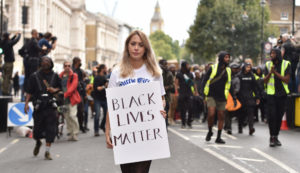Thanks to a spate of legislation passed at the end of the last Congress, combined with better-than-expected election results, the Democrats are feeling optimistic. That optimism very much extends to Biden himself. As he put it, when asked after the election what he might do differently in the next two years to change voters’ perceptions: “Nothing, because they’re just finding out what we’re doing. The more they know about what we’re doing, the more support there is.”
Since then, Biden has embarked on a road trip to help voters “know about what we’re doing”. He has visited Michigan, Arizona, Kentucky, Ohio and Baltimore, Maryland, touting the job-creating wonders of three big bills his administration has passed: the Infrastructure Investment and Jobs Act; the Chips and Science Act (semiconductors) and the Inflation Reduction Act (climate). Moreover, in a play for the working-class vote, he has been at pains to emphasise the blue-collar benefits of these bills: “The vast majority of [the] jobs … that we’re going to create don’t require a college degree.”
This week marks two years on the job for Biden and his administration, the halfway point of his presidential term. As he scrambles to limit the fall-out from the discovery of classified documents at his home, now seems an appropriate time to assess whether the Democrats’ early optimism was justified and whether Biden’s presumed strategy for the next two years is likely to work.
There are reasons for scepticism, the most obvious being the problem of the cultural Left, which cheerful propaganda about blue-collar jobs fails to address. The cultural Left has managed to associate the Democratic Party with a series of views on crime, immigration, policing, free speech, race and gender that are far removed from those of the median voter. This represents a victory for the cultural Left, but has proved an electoral liability for the party as a whole.
From time to time, senior Democratic politicians attempt to dissociate themselves from unpopular ideas such as defunding the police, yet progressive voices within the party are still more deferred to than opposed. They are further amplified by Democratic-leaning media and non-profits, as well as within the party infrastructure itself. In an era when a party’s national brand increasingly defines state and even local electoral contests, Democratic candidates have a very hard time shaking these associations.
Biden clearly intends to do very little, if not “nothing”, about this problem. His administration is much happier talking about gun control than actually getting criminals off the streets and into jail. The burgeoning backlash against ideological curricula in schools, the undermining of academic achievement standards, the introduction of mandatory, politically-approved vocabulary, the absurdities of “diversity, equity and inclusion” (DEI) programmes and the excesses of “gender-affirming care” are uniformly characterised by his party as nothing more than “hateful” bigotry rather than serious concerns. The out-of-control southern border, which is experiencing historically unprecedented levels of illegal immigration, has finally provoked an administration response, but its complicated mix of looser and tighter restrictions seems likely only to muddle things further, while provoking howls of outrage from allies in the influential immigrant advocacy community.
Peeking beneath the hood of the Democrats’ relatively good 2022 election results, it’s easy to see how this problem is likely to undermine their prospects in 2024 and put a ceiling on their longer-term political support. Consider the following: the Democrats lost the nationwide popular vote by 3 points (48-51) in 2022, along with control of the House; they lost the overall working-class (non-college) vote by 13 points, down 9 points from 2020; Hispanic support declined 11 points and black support declined 14 points. The Democrats did, however, clean up among white college graduate women in competitive House districts, carrying them by 34 points.
This sounds more like a stalemate, at best, rather than a surging Democratic Party. And a stalemate that was above all based on distaste for nutty Republicans rather than love for what Democrats have done or stand for. As several studies have shown, Trump-endorsed, Maga-ish candidates managed to wipe out a good chunk of the expected swing toward Republicans, paying a penalty of about 5 points in their support levels relative to more conventional Republicans. On the other hand, Democrats went into the election with double-digit disadvantages on immigration and the border (-24), reducing crime (-20), focusing enough on the economy (-20), valuing hard work (-15) and being patriotic (-10). Another pre-election survey by Stanley Greenberg found that voters’ top worries if Democrats won full control of government were “crime and homelessness out of control in cities and police coming under attack”, followed by “the southern border being open to immigrants”. As Greenberg noted: many Democrats “assumed that battling long-standing racial inequities would be [minority voters’] top priority. But that assumption becomes indefensibly elitist when it turns out these voters were much more focused on the economy, corporate power, and crime…” These voters, he added, cared more about soaring crime rates than the rise in police abuse, “yet Democrats throughout 2021 focused almost exclusively on the latter”.
This is why Republicans were able to pillory the Democrats on crime in 2022, including using the issue to great advantage in New York state, where they flipped four Democratic-held House seats. If the Democrats had held on to them, they would have come within a whisker of holding the House. But the party, under the sway of the cultural Left, persisted in seeing the issue of crime as little more than an excuse for racialised attacks by the Right, rather than as an actual concern of voters. In New York, Democrats angrily blamed New York City mayor Eric Adams for their problems, because he has treated crime like a real issue and dared to suggest there might be problems with bail reform, a pet cause of the progressive Left. In Washington, DC, the completely Democrat and very liberal city council has just passed a law, over their own Mayor’s veto, drastically reducing punishments for violent crimes such as car-jackings, home burglaries, robberies and even homicides.
In truth, not much has changed since before the election when pro-Democrat commentators were retailing articles such as “Crime is surging (in Fox News coverage)” — despite the fact that firearm homicide deaths among black men have reached highs not seen since the early Nineties. I have termed this tendency among Democrats to resolutely disregard a real problem if conservatives are talking about it as the “Fox News Fallacy”. In the aftermath of last year’s midterms, it is alive and well.
This is the problem Democrats and Biden refuse to address. They apparently think the legislation they are focusing on, plus the association of the GOP with unpopular Trumpian antics, will function as a get-out-of-jail-free card with the electorate, and that their cultural problem can be safely ignored. This is foolish. Trump’s influence is clearly diminishing within the Republican Party and other, less flawed messengers lie in wait to pick up the working-class populist banner. They will not make as easy a target. And meanwhile, even the Democrats’ ability to pillory the Republicans through focusing on Trump’s misdeeds has been undermined by the recent discovery of classified documents in Biden’s Delaware garage and other unauthorised venues.
Nor is it so clear that voters, particularly working-class voters, are going to be an easy sell on the virtues of the Democrats’ economic programme. Real wages, due to high inflation, have actually decreased for most workers since 2020. Biden’s administration touts the projected openings of several semiconductor and electric battery plants, which are tied to provisions of the administration’s semiconductor and climate bills. But these new plants, while highly desirable, will only affect a small sector of the country’s services-dominated working class.
More fundamentally, the entire theory is just wrong. The idea that Democrats can just turn up the volume on economic issues and ignore their unpopular stances on sociocultural issues is absurd. Culture matters and the issues to which they are connected matter. They are a hugely important part of how voters assess who is on their side and who is not; whose philosophy they can identify with and whose they can’t.
Instead, for working-class voters to seriously consider their economic pitch, Democrats need to convince them that they are not looked down on, that their concerns are taken seriously and that their views on culturally freighted issues will not be summarily dismissed as unenlightened. With today’s party, unfortunately, this will be difficult. Resistance has been, and remains, stiff to any compromise that might involve moving to the centre on such issues, a problem that talking more about economic issues simply ignores.
A more sophisticated — yet equally misguided — version of this idea holds that the Democrats’ progressive economic programme, by producing material improvements in the lives of less sympathetic voters, will, given enough time, overcome their cultural suspicions and lead a significant portion of them to embrace the party, thereby breaking the current ceiling in Democratic support. This theory has some merit over the medium to long term. But it does not follow that cultural Leftism can be ignored as a problem. Cultural views and values are not reducible to material circumstances; therefore, even if the material circumstances of these voters improve, cultural resistance to a party whose views seem antithetical to their own will likely continue.
But perhaps the biggest problem faced by the Democrats is a more simple one: time. It will, after all, take considerable time to restructure the American economy away from the reigning neoliberal model and deliver substantial, widely distributed benefits that could change voters’ lives so profoundly that their loyalties shift. Many and far-ranging changes will be necessary, spread out over years, not one session of Congress. To implement them will require a significant period of political dominance, which cultural Leftism makes very difficult, if not impossible. This, ultimately, is Biden’s dilemma: the Democrats cannot have both cultural Leftism and political dominance. Eventually they will have to choose.
Disclaimer
Some of the posts we share are controversial and we do not necessarily agree with them in the whole extend. Sometimes we agree with the content or part of it but we do not agree with the narration or language. Nevertheless we find them somehow interesting, valuable and/or informative or we share them, because we strongly believe in freedom of speech, free press and journalism. We strongly encourage you to have a critical approach to all the content, do your own research and analysis to build your own opinion.
We would be glad to have your feedback.
Source: UnHerd Read the original article here: https://unherd.com/




